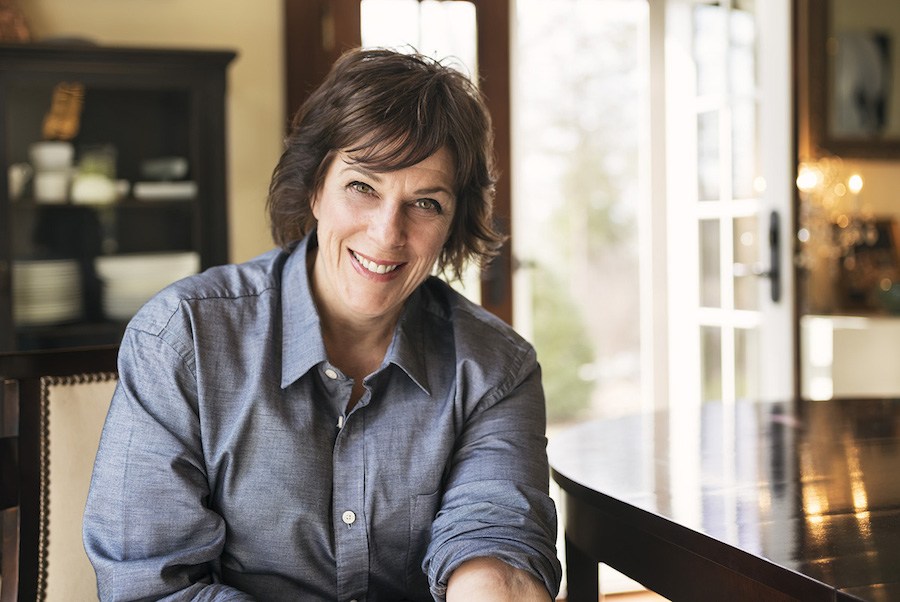Widespread Workplace Toxicity Alleged Under Acclaimed Boston Chef Barbara Lynch
The New York Times and The Boston Globe both published stories today citing over a dozen former employees of the Barbara Lynch Collective, alleging years of verbal and physical harassment.
Barbara Lynch—the acclaimed local chef and restaurateur behind Menton, No. 9 Park, and several other high-profile Boston restaurants—has been accused of leading a toxic workplace, according to dual reports published nearly simultaneously today in The New York Times and The Boston Globe. Both stories cite over a dozen interviews with former staffers of Lynch’s restaurant group, the Barbara Lynch Collective, pointing to Lynch’s actions in the aftermath of two recent employee deaths as a boiling point after years of alleged workplace abuse. The wide-ranging reports include allegations of verbal and physical harassment and other inappropriate managerial behavior.
Tensions allegedly came to a head last month, during a March staff meeting at Fort Point’s Menton, following a second employee death in roughly two months. Both the Times and Globe reported hearing an audio recording of the meeting, in which Lynch allegedly questioned the exhausted team about what was going on, leading to an argument with lead chef Tim Dearing, who criticized Lynch for not addressing her distraught staff after the first employee’s death in January. Both the Times and Globe report that Lynch fired Dearing on the spot, he responded by vowing to damage her reputation, and she then threatened to push his head through a window. Employees alleged to both publications that Lynch was visibly intoxicated during this confrontation.
In a statement provided to Boston, Lynch discussed the emotional toll of the deaths, noting that she wished she “had the capacity to have handled it better as a leader and as a friend.” (We’ve published the statement in its entirety below.)
“I now face a range of scurrilous accusations from former employees, the timing of which seems more than coincidental to the pledge by [Dearing] that he was going to ‘take me down,’” the statement continues, describing the meeting in question as “emotionally charged,” with all involved feeling “shaken and devastated” by the deaths of their colleagues.
This meeting came about two weeks before two former employees filed a class-action lawsuit against Lynch, alleging that she diverted tips collected in May and June 2020 to a program providing employees with food and supplies. In Massachusetts, restaurant waitstaff can be paid a tipped minimum wage—which is lower than standard minimum wage—as long as tips, or the employer, make up the difference. The lawsuit claims that the employees were paid below the standard minimum wage and were thus entitled to receive their share of tips.
When the Globe reported on this lawsuit in March, a spokesperson for Barbara Lynch’s restaurant group told the publication that during the eight-week period in question, all tipped employees’ pay exceeded the standard minimum wage thanks to funds from the pandemic-era Paycheck Protection Plan. “The company intends to vigorously defend these claims,” the representative told the Globe.
Lynch is a three-time James Beard award winner who landed on Time magazine’s 2017 list of the 100 Most Influential People. Her restaurants regularly land on best-of lists in numerous publications, and her rags-to-riches story is well-known in Boston and beyond, fighting her way through a rough childhood in South Boston and sexism in restaurant kitchens before beginning to open her own restaurants 25 years ago. In addition to discussion of the March meeting and the lawsuit, both Times and Globe reports portray years of workplace issues roiling beneath all the local and national acclaim.
“For decades, [sources] said, her alcohol abuse and verbal and physical aggressions inside the restaurants have been an open secret among hospitality workers,” writes the Times, with the frequency of “abusive outbursts and impulsive firings” allegedly increasing in recent years, even as the #MeToo movement has brought about something of a reckoning for bad behavior throughout the restaurant industry and beyond.
Former employees describe a workplace culture where Lynch’s intoxication “routinely led to inappropriate behavior that often made it difficult to do their jobs,” according to the Globe. “They hope that coming forward will push Lynch to get the help she needs.”
Here is Lynch’s statement in full:
First I want to address the events at Menton on March 15, I consider my employees part of my family. Losing these two individuals who I cared for deeply and championed was a personal tragedy for me. It is difficult to put that type of loss into words, and finding the strength to comfort the team in the aftermath of those losses was incredibly difficult. I’m human, and looking back, I wish I had the capacity to have handled it better as a leader and as a friend. I continue to grieve for them and for their loved ones.
As a woman starting with zero education or wealth, I have had to work extraordinarily hard to become a respected chef and entrepreneur of seven acclaimed high end restaurants. It is no secret that I have set high expectations for myself and our 160 employees, and developing them to be their best they can be has always been and remains my highest goal and achievement. I now face a range of scurrilous accusations from former employees, the timing of which seems more than coincidental to the pledge by a former chef that he was going to “take me down.” Those words were uttered by chef Tim Dearing in an emotionally charged meeting of staff on March 15 when we were all grieving the deaths of two friends and colleagues from the same restaurant in rapid succession, which left us all shaken and devastated.
I take a lot of pride in the teams we built over the years, and I recognize that at times I can be a hard charging boss. I’m grateful for the many loyal stalwarts who remain outstanding employees for decades helping to drive our success in an industry known for its revolving doors. I cannot put out all the fires that flare in this high stress environment and my very modest roots allow me to recognize that I’m far from being above reproach. I make personnel decisions that may rankle those who don’t measure up or don’t want to commit to true teamwork and service; perhaps some I should have removed sooner. I acknowledge that I am a creature of the alcohol-steeped hospitality and restaurant industry and I am committed to taking responsibility and working on myself. But the fantastical accusations surfacing now – that employees working side-by-side with me on the same shifts did not see – seem designed to “take me down” and lump me in with peers accused of behavior that is absolutely criminal.
I expressly reject the various false accusations lodged against me that I have behaved inappropriately with employees or crossed professional guideposts that are important to me. Early in the pandemic, we fed employees to help them through that time when all restaurants were closed. I have provided coverage for employees suffering from trauma and other challenges and I have mentored chefs that have gone on to national and international renown.
Throughout my life, I have been doubted, but I have learned over the years that with great opportunity comes great responsibility to others. I have endeavored to give employees ample support and development opportunities throughout the years and I will continue to do that.



